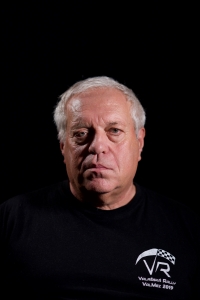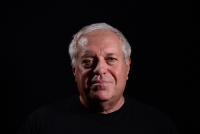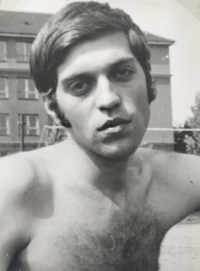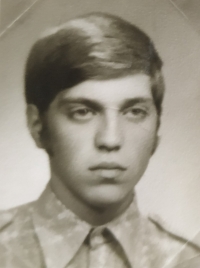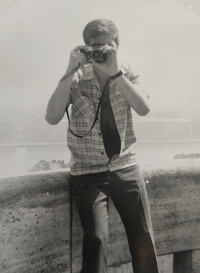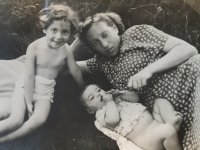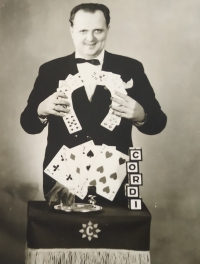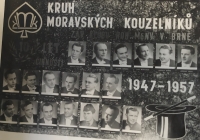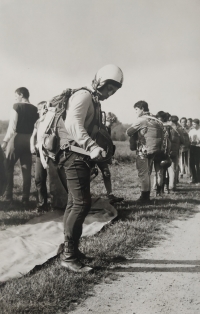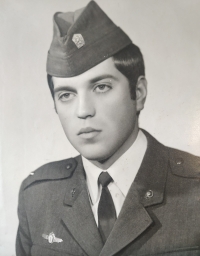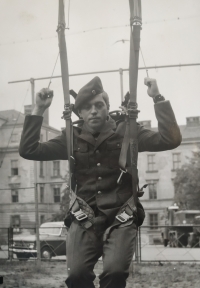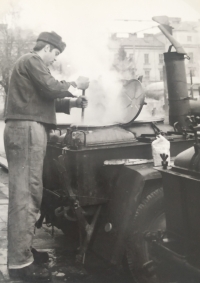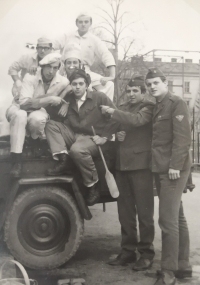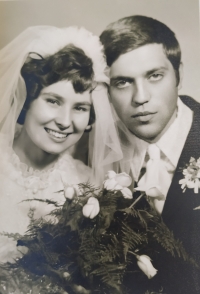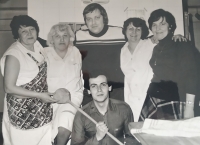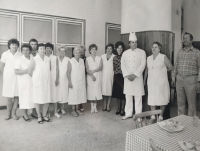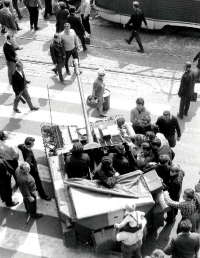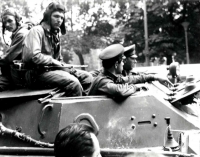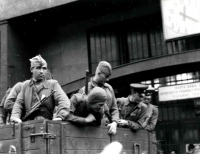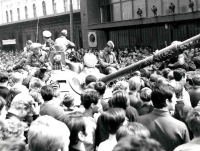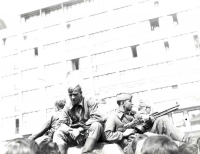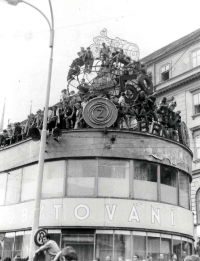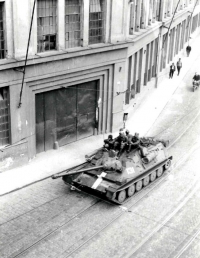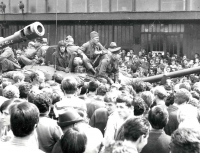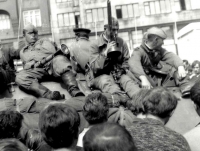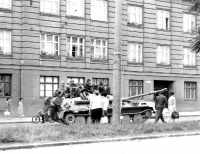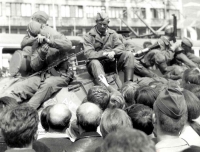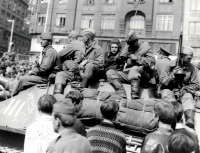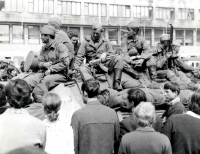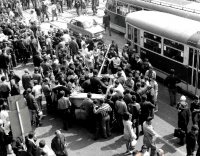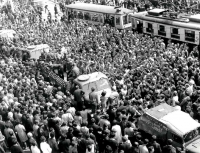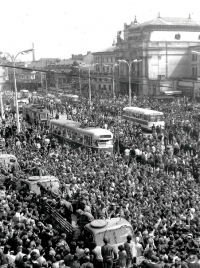Shopping first, then taking pictures of the tanks

Stáhnout obrázek
Vladimír Buček comes from Brno, where he was born on December 18, 1952. From an early age, he devoted himself to photography. He lived with his parents and a sister near the city center, where he also documented the occupation of Warsaw Pact troops with a camera in August 1968. Brněnská Rovnost printed two of his photos taken in front of the Central Station building. In August 1969, he went to the center again to photograph the ongoing protests of citizens against the occupation. It resulted in an arrest and a three-week stay in the Bohunice custodial prison. His parents obtained his release on the basis of a commitment that the defendant would be present at the trial. The court withdrew the accusation of disobeying the public official‘s call and obstructing the performance of the public official‘s service. Vladimír Buček trained to be a chef and remained faithful to this profession for 25 years. He spent six years with his family in the Krkonoše Mountains, where he cooked in the recreation center of the Ministry of the Interior. From there he went as a chef to the canteen of the Regional Administration of the National Security Corps in Brno. After 1989, he worked as a driver of a bus for the Brno City Transport Company. He is currently retired and is actively involved in many interests. Let‘s name the track commissioner at motorcycle races and membership in the Police Historical Society for all of them.
